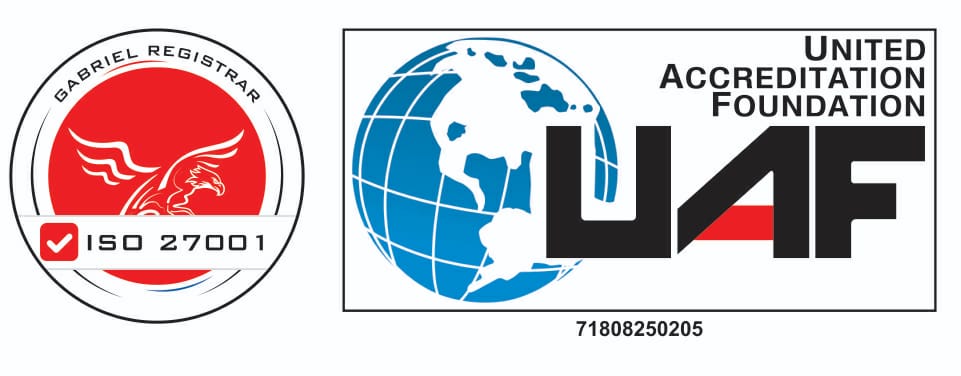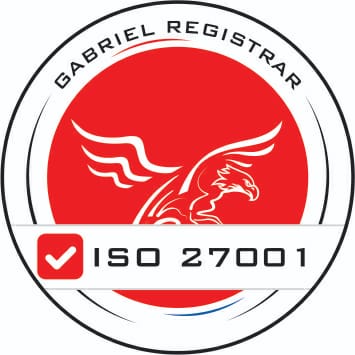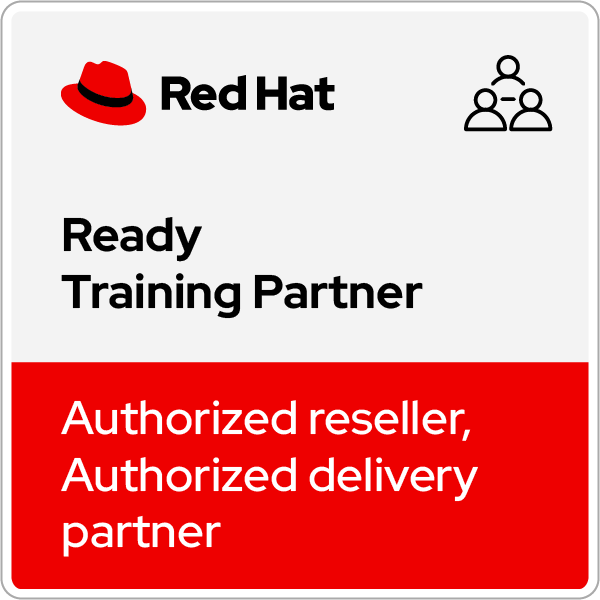The global standard for Information Security Management Systems (ISMS), ISO 27001 accreditation, has drawn much interest in the Australian corporate community.
Accreditation demonstrates an organization’s dedication to protecting its important data and information assets and is not merely a badge of honour.
Threats to information security and data breaches are prevalent in today’s digital environment. Therefore, Australian organizations must embrace reliable information security standards like ISO 27001.
This certification helps businesses get a competitive edge and strengthen their data security posture while garnering customer trust.
It also conforms to information security rules and recommendations issued by the Australian government, making it even more important for regional businesses.
This blog will include your detailed guide on How to get ISO 27001 certification in Australia.
Table of Contents
Why is ISO 27001 Essential for Australian Businesses?

With the rapid expansion of digital transformations and rising cyber threats in Australia, data security is now more than simply a functional concern; it’s essential for long-term business continuity. Because it fits certain legislative needs in the nation, ISO 27001 is crucial.
The Privacy Act of 1988 is a well-known regulation in Australia that requires companies to provide specific security for their data.
To protect the information and data of the Australian Government, the Information Security Registered Assessors Programme (IRAP), run by the Australian Signals Directorate (ASD), was created.
Both regulations easily incorporate the data security and privacy concepts of ISO 27001.
Legal compliance is only one aspect of ISO 27001’s compliance; additional advantages include risk management, customer assurance, and operational effectiveness.
Since the standard’s core is a risk-based approach, it aids organizations in identifying, analyzing, and mitigating information security threats. This supports a strong risk management framework that regulatory agencies frequently desire.
How to Avail ISO 27001 Certification in Australia?

Understanding ISO 27001’s standards thoroughly is the first step in the process, which ends with a successful certification audit. Here’s how to accomplish it:
Step 1: Understanding the ISO 27001 Requirements
Understanding the requirements of ISO 27001 necessitates having a thorough understanding of the ISO 27001:2013 standard.
An international standard known as ISO 27001:2013 outlines standards for Information Security Management Systems (ISMS). The standard is made to make it easier for businesses to find and handle risks to their data security.
11 major clauses, four of which (clauses 4-10) make up the Plan-Do-Check-Act (PDCA) cycle, and seven Annex A domains with 114 controls make up the framework of ISO 27001.
The controls offer potential ways to reduce recognized risks, whereas the clauses establish the fundamental requirements for the ISMS. Businesses should carefully review the clauses and controls, adapt them to fit their particular company situation, and include them in their ISMS.
Step 2: Develop an Information Security Management System (ISMS)
The next stage is to create an ISMS designed for your organization using the information from your risk assessment. Your organization establishes an ISMS as a framework of rules, practices, and controls to manage and reduce the risks discovered during the risk assessment.
Each company’s ISMS will have a specific design that reflects its distinct organizational structure, business goals, and data security threats.
The Plan-Do-Check-Act (PDCA) continual improvement approach is the foundation for the ISMS described in ISO 27001 standards.
The ISMS objectives, methods, and controls are created during the planning phase. This should cover important topics, including security policy, risk management strategy, role and responsibility distribution, and training and awareness initiatives.
Include all legal, governmental, and contractual restrictions the business must follow with special attention.
Step 3: Implementing the ISMS
The next step after developing a strong ISMS is to roll it out across your entire organization. This entails putting your prepared controls and procedures into practice.
Implementation calls for considerable organizational changes in addition to technology modifications. All employees must be fully informed about the ISMS, the new standards they must adhere to, and their responsibilities for maintaining information security.
Comprehensive training programs can be helpful in this stage to ensure successful implementation.
Drills and practice scenarios are two more helpful ways to gauge how well-prepared your team is.
To prove the effectiveness of the ISMS to the auditor during certification, proper record-keeping of activities, findings, and actions is crucial.
Step 4: Conduct an Internal Audit
An internal audit is a free, unbiased evaluation of your ISMS to determine its calibre, efficacy, and conformance with ISO 27001.
This entails thoroughly examining the policies, practices, and controls in your organization to ensure that they are correctly applied and comply with the standard’s requirements.
Before the external auditor arrives, you can identify and address any nonconformities during the internal audit.
Your internal auditors must be able to implement audit procedures objectively and precisely and must comprehend the criteria of ISO 27001.
For a thorough assessment of the ISMS, they should be able to examine papers, records, and activities and conduct employee interviews.
Step 5: Management Review
To guarantee that the ISMS is still effective and suitable for your organization, management evaluations are crucial. The certification auditor will require proof that management reviews are carried out often.
Key components of your ISMS are assessed throughout the review, including audit findings, ISMS feedback, risk adjustments and repercussions, the degree to which objectives have been met, and risk management outcomes.
Discussions about the ISMS’s performance are necessary before choices and steps for its improvement are adopted.
Participating in these evaluations with top management ensures their dedication to the ISMS and strengthens the company’s security culture. The results of these assessments should be incorporated into the process of ongoing improvement.
Step 6: Certification Audit
Your organization is prepared for the certification audit once the internal and management reviews are completed. An outside auditor from a certifying agency will handle this last step of the process.
There are two steps to the certification audit. Stage 1 often involves a desktop audit to determine whether your paperwork complies with ISO 27001 standards.
This process includes checking the risk assessment and treatment methodology and the Statement of Applicability (SoA), which explains the controls you’ve applied and their justification.
The certification body evaluates whether your ISMS’s operations meet ISO 27001 requirements and your policies, procedures, and controls during stage 2, which is the main audit.
The auditor will visit your company and review the documentation for the ISMS procedures.
Pros and Cons of ISO 27001 Certification for Businesses in Australia

Obtaining ISO 27001 certification offers several benefits but poses some difficulties, as explained below:
Pros of ISO 27001 Certification for Businesses in Australia

1. Enhanced Data Security: An organization’s defense against cybersecurity attacks is strengthened through the ISO 27001 certification procedure. The implementation of strong controls and the identification of potential vulnerabilities strengthen data security.
2. Regulatory Compliance: ISO 27001 enables you to abide by Australian legislation, including the Privacy Act 1988, Australian Signals Directorate rules, and international security standards. Your company may avoid fines and reputational damage by complying with the law.
3. Gaining a Competitive Edge: In today’s data-driven world, having ISO 27001 accreditation attests to a company’s strong data security procedures. It gives you a competitive advantage and opens up more lucrative business prospects.
4. Increased Employee Understanding: ISO 27001 mandates training and raising everyone’s understanding of information security. By doing this, internal security risks are reduced, and the organization’s overall security culture is improved.
Cons of ISO 27001 Certification for Businesses in Australia

1. Implementation Costs: Achieving ISO 27001 certification entails expenditures for resources, an audit, and sometimes outside consultants. These expenses could be too high for small companies or new ventures.
2. Time-Consuming Procedure: It can take several months to complete the certification, necessitating thorough planning and dedication from top management.
3. Change Management: ISO 27001 implementation necessitates considerable organizational changes, ranging from software programs and operational procedures to organizational culture. The management of these changes might take a lot of work.
4. Certification Maintenance: ISO 27001 is a continuing certification. A three-year recertification audit and ongoing monitoring, periodic internal audits, management reviews, and internal audits are required. This ongoing dedication may put a burden on resources.
Facts and Figures: Number of ISO 27001 Certified Businesses in Australia

Due to the growing understanding of the significance of ISO 27001, certification has significantly increased in Australia in recent years.
Australia saw a startling increase in ISO 27001 certifications, with a growth rate of over 200%, according to the ISO Survey 2016.
As data security becomes a fundamental business component in today’s digital world, this tendency is not slowing down.
Finance, healthcare, and information technology are the industries in Australia that have the highest ISO 27001 implementation rates, which is appropriate given the sensitivity of the data in these industries.
The demand for a strong information security management system has only increased as remote work has become more prevalent and cyber dangers have increased across all industries.
According to numerous sources, businesses in Australia that have earned ISO 27001 accreditation reportedly see significant advantages.
These include a strengthened brand, increased stakeholder and customer trust, regulatory compliance, and a systematic approach to monitoring and minimizing information security threats.
The proactive and risk-based approach to information security management outlined in ISO 27001 is closely aligned with the Australian Signals Directorate’s (ASD) Essential Eight, a list of techniques to reduce cybersecurity incidents.
As a result, obtaining ISO 27001 certification aids companies in adhering to regulatory guidelines, thereby enhancing the standard’s significance for Australian enterprises.
The Australian Prudential Regulation Authority’s (APRA) prudential standard CPS 234—which applies to enterprises under APRA regulation—aligns with ISO 27001, further extending its applicability.
The standard imposes particular information security standards, such as maintaining an information security capacity proportionate to the magnitude and scope of risks to information assets and putting controls in place to safeguard information assets.
Conclusion: How to Get ISO 27001 Certification in Australia?
An organization’s dedication to safeguarding its priceless information assets is demonstrated by ISO 27001, which is more than just an international standard. It satisfies regulatory standards while preparing Australian organizations to meet the rising data security demands.
Understanding the standards of ISO 27001 is the first step in an organized process that ends with passing the certification audit. Although earning certification might appear difficult, the protected data environment, increased trust, and competitive advantage it provides make it immensely satisfying.
Therefore, adopting ISO 27001 certification is strongly advised for Australian firms to overcome their information security difficulties and strengthen their position in today’s data-driven business environment.
We Can Help You Become an ISO 27001 Certified Organisation!
FAQs: How to Get ISO 27001 Certification in Australia?
1. Why is ISO 27001 crucial for Australian businesses?
Ans. Data breaches and cyber dangers have become increasingly important as the world becomes more digital. Australian firms may manage and reduce their security risks with the aid of ISO 27001. Additionally, it complies with several Australian government information security standards, making it useful for regulatory compliance.
2. What is the first step to getting certified to ISO 27001?
Ans. The first step is understanding the ISO 27001 requirements, which comprise numerous clauses and controls outlining the requirements of an effective ISMS.
3. What steps are included in the certification process?
Ans. Understanding the standards of ISO 27001 is often followed by a risk assessment, creating an ISMS, implementing the system, an internal audit, correcting any errors found, and eventually, an external audit and certification.
4. Can any kind of business get ISO 27001 certified?
Ans. Yes, any organization, regardless of size or industry, that desires to develop a reliable system to secure its data and information assets is subject to ISO 27001 requirements.
5. How long does it take to achieve ISO 27001 certification?
Ans. The amount of time needed can change depending on organizational size, system complexity, and the strength of the security procedures already in place. However, it can take anything from 6 to 12 months on average.
6. How long is the ISO 27001 certification is valid?
Ans. The certification is good for three years after it is awarded. However, to guarantee continuous compliance, yearly surveillance audits will be necessary.
7. How does an ISO 27001 risk assessment work?
Ans. Identifying and assessing potential hazards that could negatively influence the organization’s information security is the process of risk assessment. It serves as the foundation of ISO 27001 and aids in choosing the right controls for the ISMS.
8. How important is top management to getting ISO 27001 certified?
Ans. Establishing policies, assuring the availability of resources, highlighting the significance of information security, evaluating the effectiveness of ISMSs, and fostering continuous improvement depend heavily on top management.
9. What happens if my company fails the certification audit?
Ans. The certification body will produce a report outlining the found non-conformances if your organization fails to pass. After that, your company will have enough time to address these problems before being re-evaluated for those particular issues.












